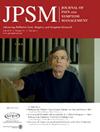Towards a Crisis Management Playbook: Hospice and Palliative Team Members’ Views Amid COVID-19
IF 3.2
2区 医学
Q2 CLINICAL NEUROLOGY
引用次数: 0
Abstract
Context
The critical role of hospice and palliative care in response to the COVID-19 pandemic is well recognized, but there is limited evidence to guide healthcare leadership through future crises.
Objectives
Our goal was to support future organizational resilience by exploring hospice and palliative team members’ perspectives on crisis leadership during the COVID-19 pandemic in New York City (NYC).
Methods
This qualitative descriptive study used individual, semi-structured interviews of purposively sampled interdisciplinary team members. Enrollment sites were two large NYC metro hospice care organizations and one outpatient palliative care practice. We asked participants to complete a demographic form and a 45–60 minute interview. We used descriptive statistics and thematic analysis, respectively, for data analysis. We triangulated the data by presenting preliminary study findings to a group of clinicians (n=21) from one of the referring organizations.
Results
Participants (n=30) were professionally diverse (e.g., nurses, physicians, social workers, chaplains, administrators), experienced (mean=17 years; 10 years in hospice), and highly educated (83% ≥ master's degree). About half (n=15) self-identified as white, non-Hispanic, and nearly half (n=13) self-identified as being from a racial/ethnic minoritized group. Two (n=2) did not wish to self-identify. We identified four themes that reflected challenges and adaptive responses to providing care during a crisis: Stay Open and Stay Safe; Act Flexibly; Lead Adaptively; and Create a Culture of Solidarity.
Conclusion
While additional work is indicated, findings offer direction for a crisis management playbook to guide leadership in hospice, palliative care, and other healthcare settings in future crises.
危机管理手册:安宁疗护与姑息治疗团队成员在COVID-19中的观点。
背景:安宁疗护与姑息关怀在应对 COVID-19 大流行中的关键作用已得到广泛认可,但用于指导医疗保健领导层应对未来危机的证据却很有限:我们的目标是通过探究安宁疗护与姑息关怀团队成员对纽约市(NYC)COVID-19 大流行期间危机领导力的看法来支持未来的组织复原力:这项定性描述性研究对跨学科团队成员进行了有目的的个人半结构化访谈。研究地点为纽约市的两家大型安宁疗护机构和一家姑息关怀门诊。我们要求参与者填写一份人口统计学表格,并进行 45-60 分钟的访谈。我们分别使用描述性统计和主题分析进行数据分析。我们向其中一家转介机构的一组临床医生(21 人)展示了初步研究结果,从而对数据进行了三角测量:参与者(人数=30)职业多样(如护士、医生、社工、牧师、行政人员)、经验丰富(平均=17年;从事安宁疗护10年)、学历高(83%≥硕士学位)。约半数(15 人)自我认同为非西班牙裔白人,近半数(13 人)自我认同为少数种族/族裔群体成员。两人(n=2)不愿自我认同。我们确定了四个主题,反映了在危机期间提供护理所面临的挑战和适应性应对措施:保持开放和安全;灵活行动;适应性领导;创建团结文化:虽然还需要做更多的工作,但研究结果为危机管理手册提供了方向,可在未来危机中指导安宁疗护、姑息关怀和其他医疗机构的领导层。
本文章由计算机程序翻译,如有差异,请以英文原文为准。
求助全文
约1分钟内获得全文
求助全文
来源期刊
CiteScore
8.90
自引率
6.40%
发文量
821
审稿时长
26 days
期刊介绍:
The Journal of Pain and Symptom Management is an internationally respected, peer-reviewed journal and serves an interdisciplinary audience of professionals by providing a forum for the publication of the latest clinical research and best practices related to the relief of illness burden among patients afflicted with serious or life-threatening illness.

 求助内容:
求助内容: 应助结果提醒方式:
应助结果提醒方式:


